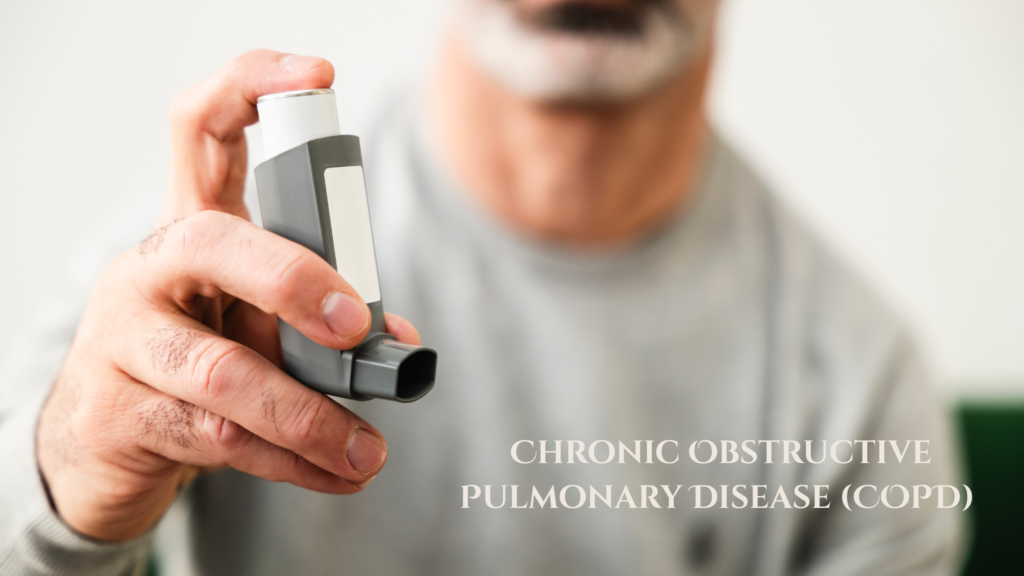Chronic Obstructive Pulmonary Disease (COPD) is a progressive and incurable lung disease that makes it hard to breathe due to airflow blockage and lung inflammation. It typically worsens over time and is most often caused by long-term exposure to harmful substances, especially cigarette smoke.
🔍 Main Features of COPD
- Chronic bronchitis: Inflammation of the bronchial tubes, leading to cough and mucus production.
- Emphysema: Damage to the air sacs (alveoli) in the lungs, reducing oxygen exchange.
Most people with COPD have elements of both conditions.
📋 Symptoms
- Shortness of breath (especially during activity)
- Chronic cough
- Frequent respiratory infections
- Wheezing
- Fatigue
- Excess mucus (sputum) production
- Bluish lips or fingernail beds (in severe cases)
🧪 Causes and Risk Factors
- Smoking (primary cause)
- Air pollution
- Occupational exposure to dust and chemicals
- Genetic factors (e.g., Alpha-1 antitrypsin deficiency)
- Long-term asthma
🩺 Diagnosis
- Spirometry: A breathing test that measures lung function.
- Chest X-ray or CT scan
- Arterial blood gas analysis
- Oxygen level monitoring (pulse oximetry)
💊 Treatment
There’s no cure for COPD, but it can be managed to improve quality of life:
Lifestyle Changes:
- Quit smoking
- Avoid air pollutants
- Pulmonary rehabilitation
- Nutrition and exercise
Medications:
- Bronchodilators (open airways)
- Steroids (reduce inflammation)
- Antibiotics (for infections)
- Oxygen therapy
In Advanced Cases:
- Surgery (e.g., lung volume reduction, lung transplant)
🔄 Prognosis
COPD is progressive, but early diagnosis and good management can significantly slow its progression and reduce symptoms.
